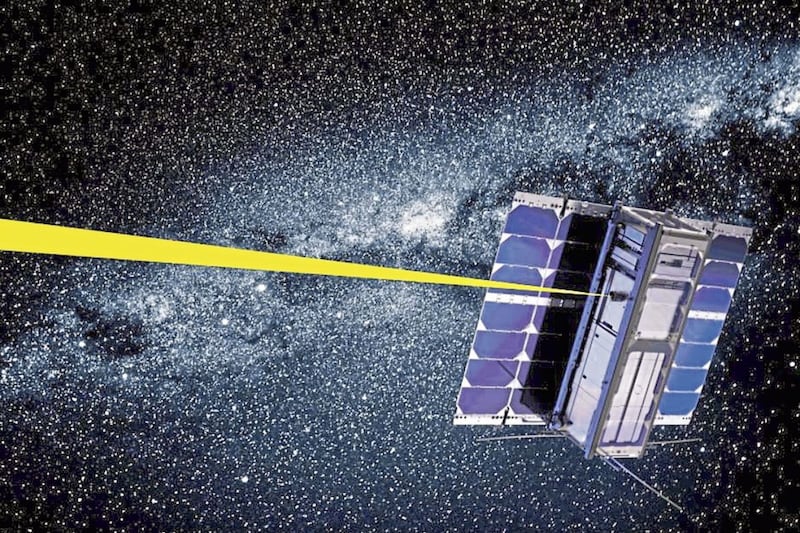A CO Antrim solar physicist and his colleagues have been awarded part of a £7m grant from the UK Space Agency for their work on small satellites and data transmission rates.
Dr Eamon Scullion is an associate professor at the University of Northumbria at Newcastle and leading the Laser Optical Communications for CubeSats project which has been awarded £368,000.
The funding will allow the academics to buy two small satellites (CubeSats) made up of three cubes, each measuring 10cm x 10cm x 10cm, and carry out laboratory tests to determine whether a laser communication system can be placed inside and if the laser transmitter’s data transfer rate is higher than that of the radio transmitters currently used in CubeSats.
If the tests are successful the team at University of Northumbria will apply for further funding to launch the satellites into space and continue testing over two years.
“A 3U CubeSat is three cubes stuck together in a line and that’s the size of the satellite. They are very cheap to put into space as you can release hundreds in one launch,” Mr Scullion explained.
“At the moment satellites send their data to other satellites at a rate of 10 megabits per second; a very low data transmission rate. We want to replace the radio transmitter with a laser transmitter which will have a higher data transmission rate. It will be 100 to 1,000 times more than you would normally get or one to 10 gigabit per second.”
Mr Scullion says the research throws up possibilities including putting scientific instruments, such as a telescope, in a CubeSat. The telescope could be trained on the solar system or pointed at earth to study climate change.
The other members of the research team are Professor Zabih Ghassemlooy, Dr Robert Wicks and Dr Mojtaba Mansour Abadi.
We're awarding over £7 million to 21 UK projects at the forefront of space innovation. ?
— UK Space Agency (@spacegovuk) December 7, 2020
The National Space Innovation Programme funding will support high-risk, high-reward projects with radical ideas for, among others, tackling climate change.
https://t.co/ThMYGhikvC pic.twitter.com/WNkFLzXbOU
The funding comes from the UK Space Agency’s National Space Innovation Programme and Chief Executive Dr Graham Turnock said space technologies “have become deeply embedded in, and critical to, almost every aspect of our daily lives”.
“With rapid technological innovation, space offers a broad and growing range of opportunities to support economic activity and protect the environment.
“From the satellites connecting our calls to the ones that tell us when to expect rain when we step outside, space technologies are fundamental to our day-to-day lives.”




